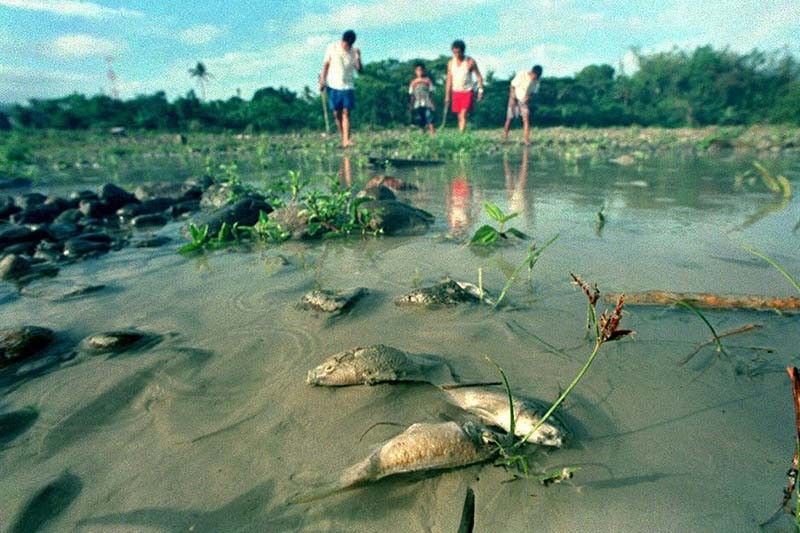Green groups hail ruling vs Marcopper, call for new mining law

MANILA, Philippines — Environmental groups welcomed a landmark court decision to award damages to survivors of the nation’s worst mining disaster after a two-decade long quest for justice.
Judge Emmanuel Recalde of Branch 38 of the Marinduque Regional Trial Court granted P200,000 in temperate damages and P100,000 in moral damages to each of at least 30 complainants in a case filed in 2001. An additional P1 million as exemplary damage was awarded to all plaintiffs.
In December 1993, parts of Marcopper Mining Corporation’s Maguila-guila tailings dam collapsed, flooding the Mogpog River with toxic waste, and flooding properties and sources of livelihood.
Three years after the Maguila-guila dam burst, a drainage tunnel in Marcopper’s Taipan pit burst, releasing 1.6 million cubic meters of toxic mine tailings that choked the Boac River, which was later declared unsafe. It also submerged rivers and killed aquatic life.
“This is a victory for the plaintiffs who had waited two decades for justice as much as it is for the other plaintiffs who had unfortunately died in the course of this case,” said Elizabeth Manggol of the Marinduque Council for Environmental Concerns.
Alyansa Tigil Mina said the court decision sends an encouraging signal to communities in the Philippines that are affected by the extraction of mineral resources.
“It may have taken decades for the court to make a ruling, but we are nevertheless hopeful considering that justice is finally served to the victims of one of the worst mining disasters in the country,” it said.
Warning
Groups said the Marcopper disaster should serve as a warning as the government reverses mining policies to help bring more money into the country after the economic slowdown brought by the COVID-19 pandemic.
“The Marcopper disaster is a warning we should heed with the ongoing and planned large-scale projects in the country. The existing Mining Act is problematic,” said lawyer E.M. Taqueban, executive director of the Legal Rights and Natural Resources Center. LRC served as the legal counsel of the plaintiffs.
For Kalikasan People’s Network for the Environment, the complainants’ slow march to justice shows how the Mining Act of 1995 and related policies “have been lacking teeth and biased toward big businesses and their political sponsors.”
Alyansa Tigil Mina also said the ruling underscores the importance of a new mining law that would put the environment and mining-affected communities above the interests of the mining industry.
“At present, the mining laws in the country fall short in preventing destructive mining. A new law must be put in place to ensure mining disasters won't happen again,” it said.
Alternative minerals management bills—which seek to place more safeguards for the environment, indigenous peoples, and host communities—have long been pending in Congress.
The South Cotabato government recently lifted a ban on open-pit mining in the province despite opposition from environmentalists and local stakeholders. The development removed the final regulatory obstacle for the stalled Tampakan copper and gold project.
In December 2021, the Duterte administration lifted the nationwide ban on open-pit mining in a bid to revitalize the industry. He also lifted a nine-year-old ban on new mining agreements in April of the same year.
- Latest
































